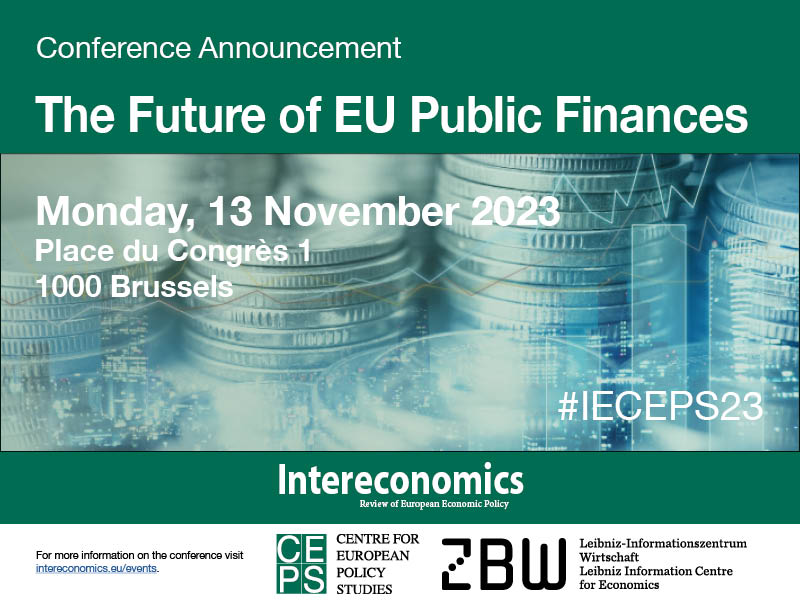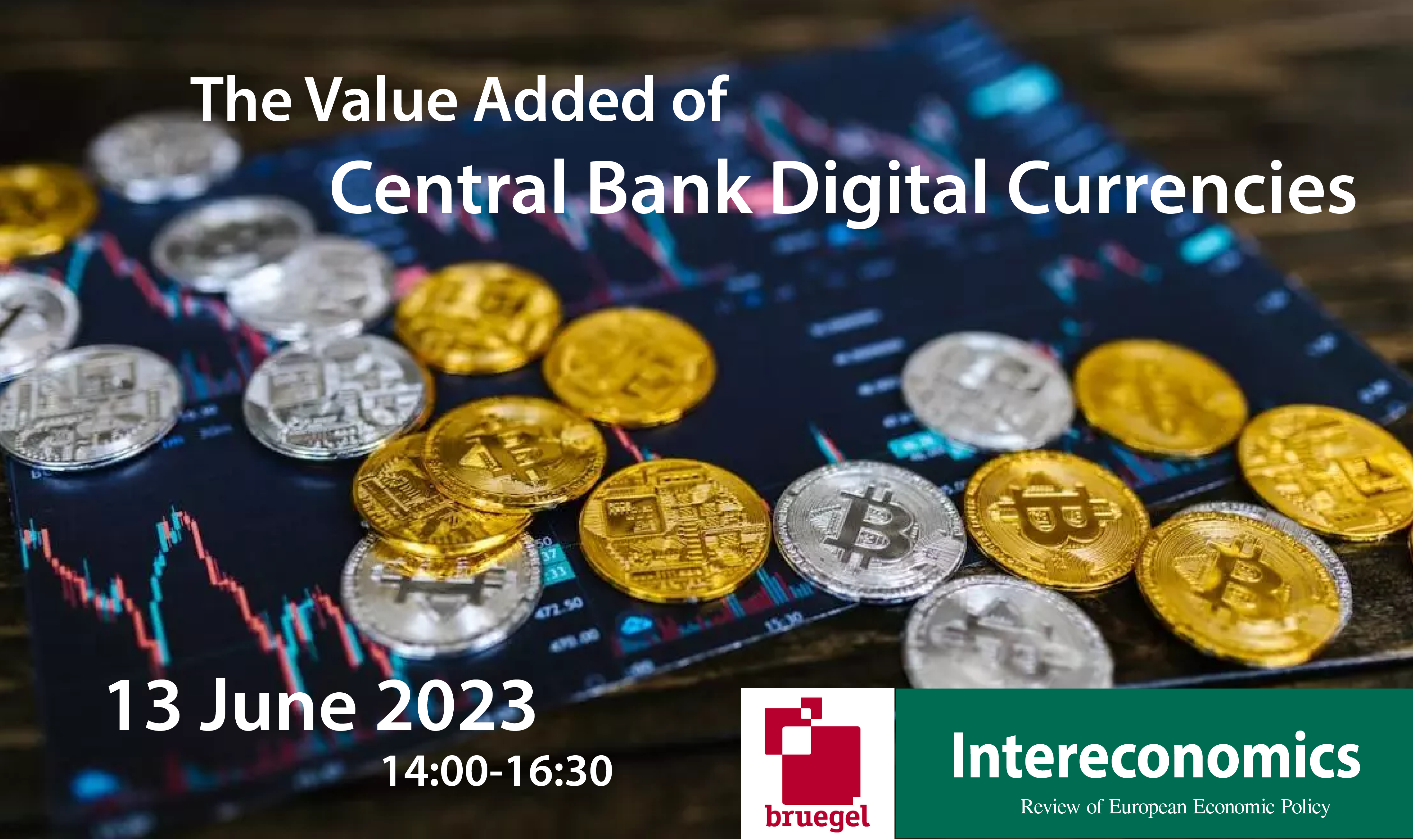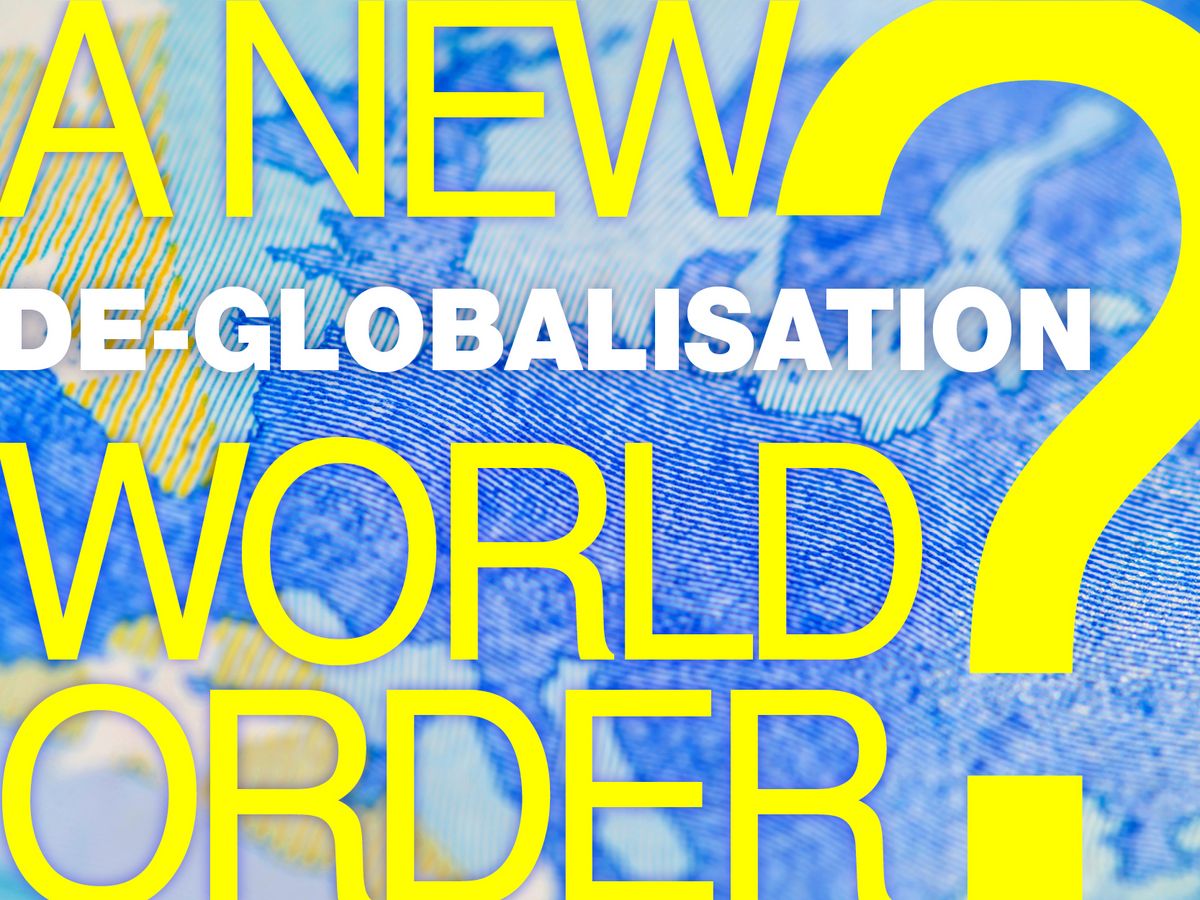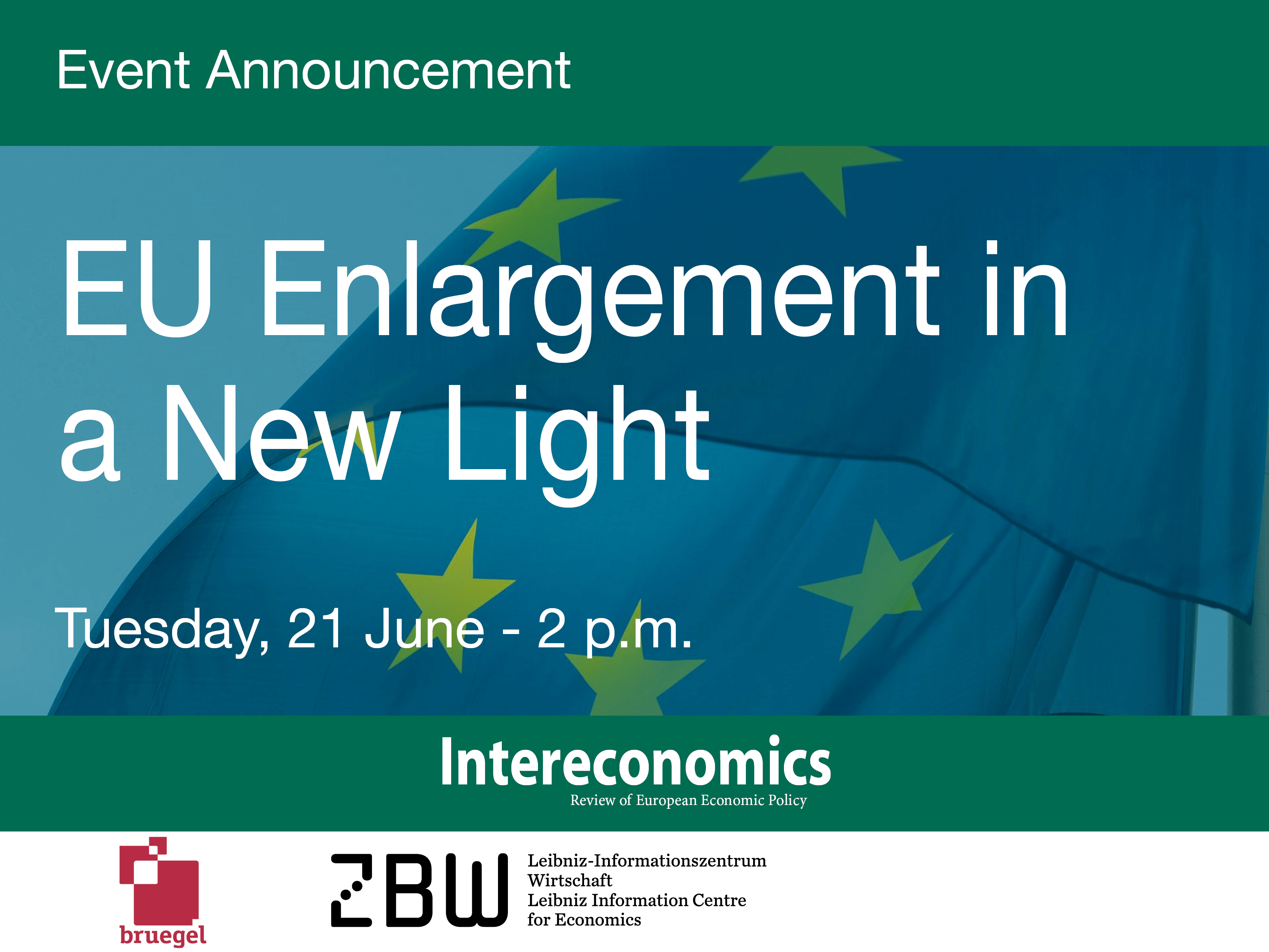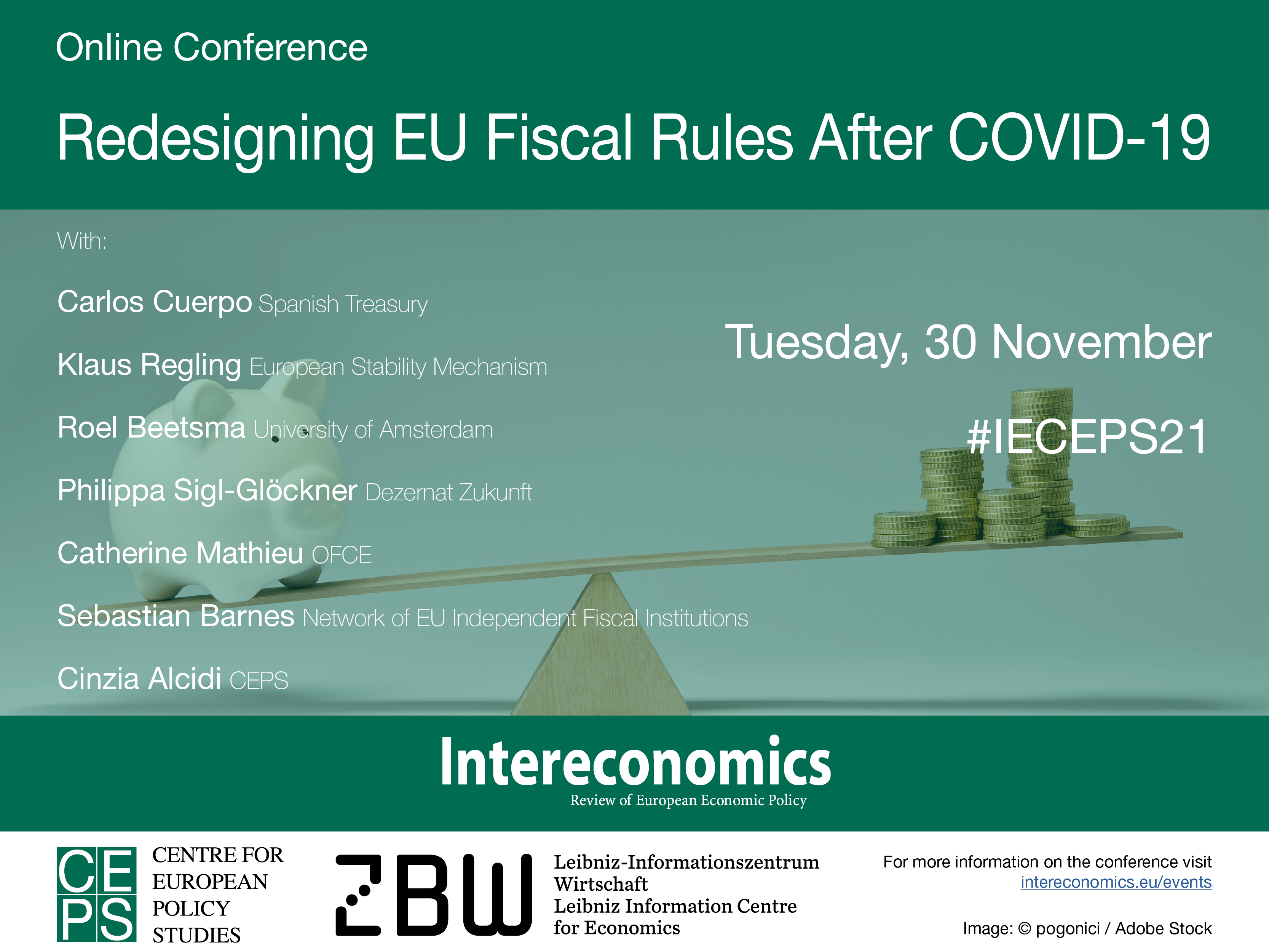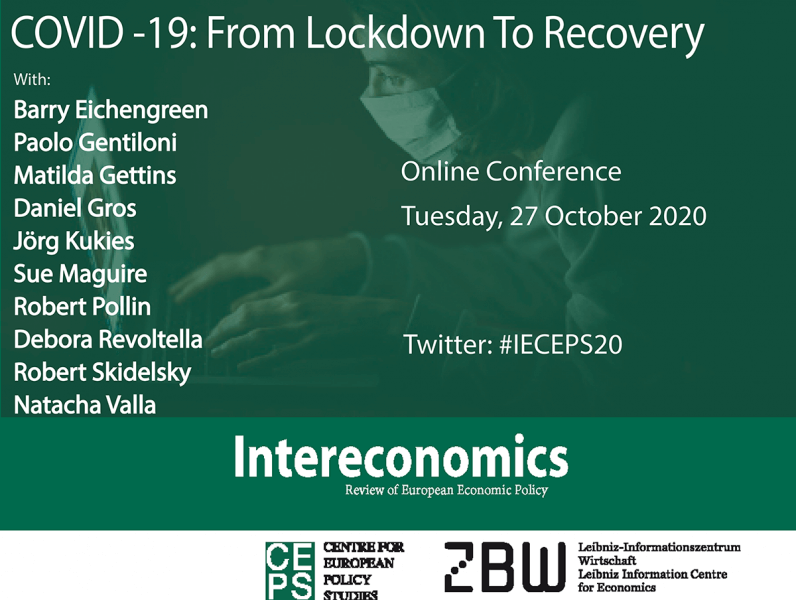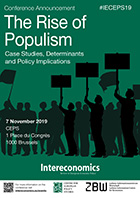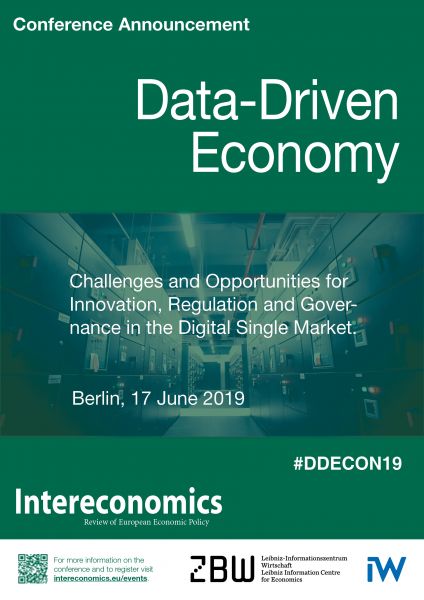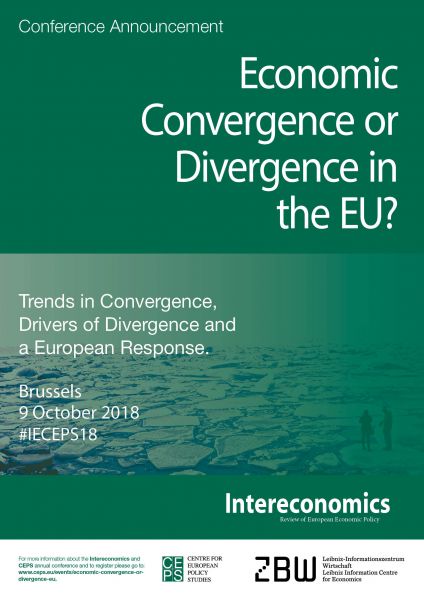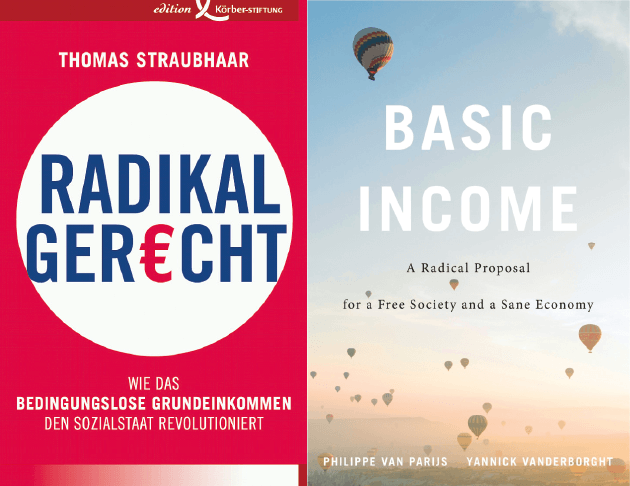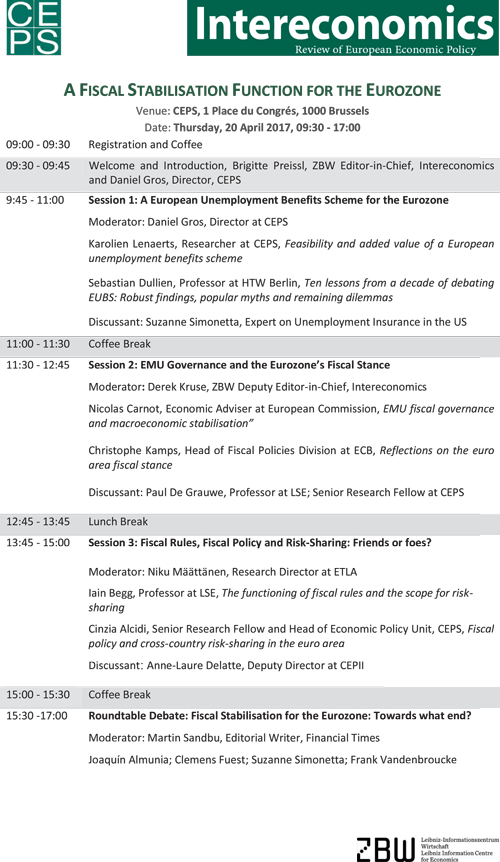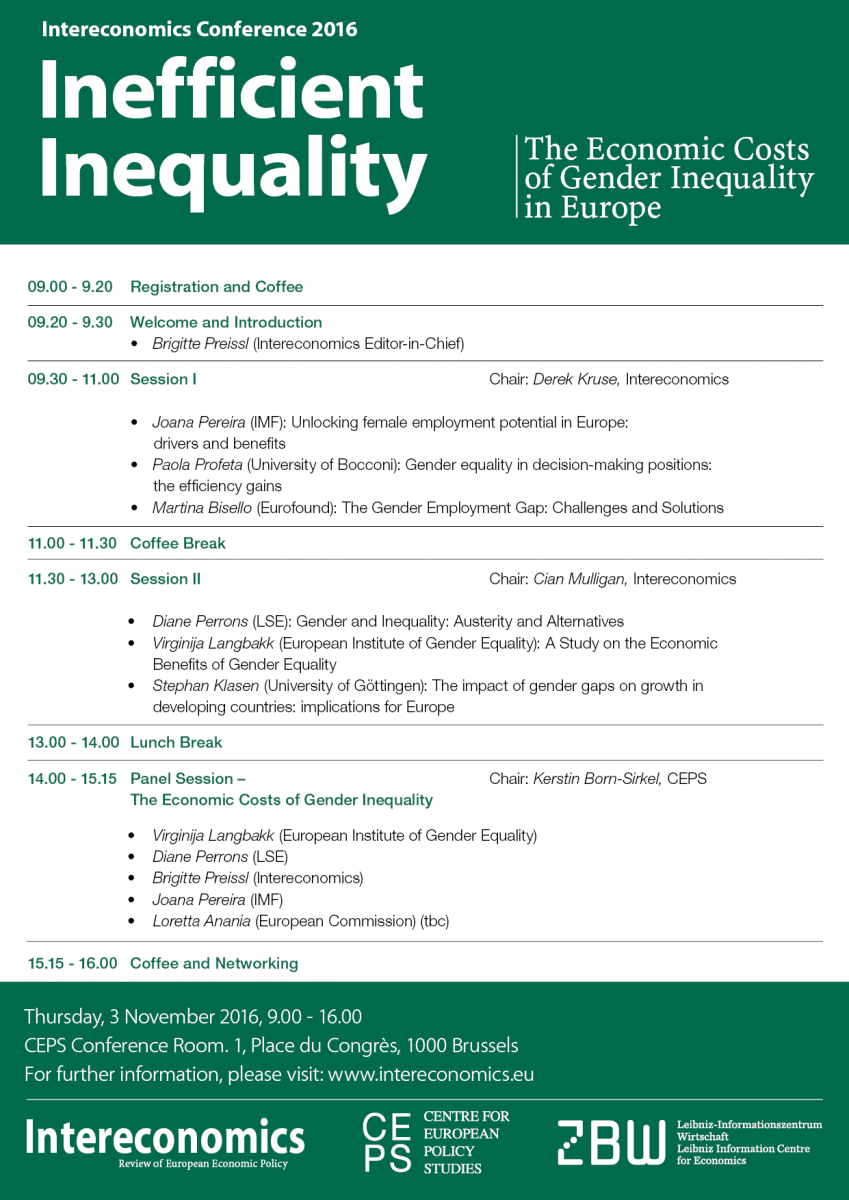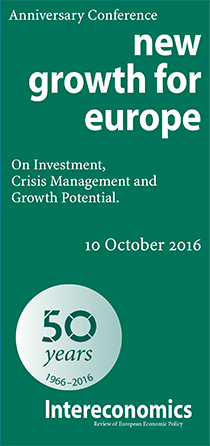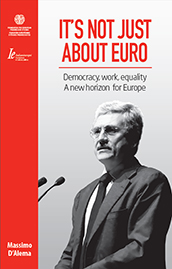Events
Conference Reviews
The Future of EU Public Finances
13 November 2023 · 09:00 am - 02:00 pm
13th Annual Intereconomics / CEPS Conference in Brussels (in-person event)
The European Union has weathered a number of turbulent storms in recent years from the COVID-19 pandemic to the ongoing war in Ukraine. These crises have highlighted the limitations of the EU budget and the need for the flexibility to adequately respond to challenges in real time. They have also raised questions about the legal feasibility of more common debt following a dramatic increase in common EU borrowing. What are the obstacles – and the opportunities – for the EU’s public finances in the face of the numerous crises of our time? Is it possible to balance predictability for long-term investments and flexibility to react to unexpected turns of events? Does the EU budget need restructuring – and if so, what would that look like? This conference will examine these and other pressing questions through thoughtful discussion and debate.
Studies and conclusions of the conference speakers are published in Intereconomics No. 6 of 2023.
The Value Added of Central Bank Digital Currencies
13 June 2023 · 02:00 pm - 04:45 pm
Joint Intereconomics/Bruegel Conference in Brussels (hybrid event)
Central bank digital currencies (CBDCs) are reshaping the financial landscape globally. Already implemented in ten countries, CBDCs offer inclusive digital payment solutions, particularly beneficial for regions with limited access to traditional banking systems. However, in more advanced financial systems, CBDCs may appear less compelling. The joint event addressed what CBDCs are, discussed the issues and prospects they represent, and explored countries' experiences with CBDCs.
Studies and conclusions of the conference speakers are published in the Forum of Intereconomics No. 4 / 2023.
De-Globalisation - A New World Order?
08 November 2022 · 02:00 pm - 05:15 pm
12th Annual Intereconomics / CEPS Conference (online)
De-globalisation or new globalisation? Where is globalisation heading? How resilient is it? Will we see a different globalisation? Have value chains passed the test?
The geopolitics of (de)globalisation Increasing competition and tension between US and China, the war in Ukraine and the divided stance over the conflict are changing the global geopolitical landscape. What does it mean from a geoeconomic or geopolitical perspective? What does it mean for the EU and its role in the world?
Studies and conclusions of the conference speakers are published in Intereconomics No. 6 of 2022.
EU Enlargement in a New Light
21 June 2022 · 01:45 pm - 05:00 pm
Joint Intereconomics/Bruegel Conference in Brussels (hybrid event)
What would increase government support around EU enlargement, and what role could membership play in future peace talks?
During two summits in March 2022, in Versailles and Brussels, European leaders expressly declined to grant candidate status or even a membership perspective to Georgia, Moldova and Ukraine. While supporters of the expansion called for a recognition of Ukraine’s place in the European family, most governments were skeptical and reluctant to take the process further. Why is that? What would it take to garner more support for the initiation of the expansion process? And what role could membership play in future peace talks? The question of EU enlargement requires an examination of the topic from multiple perspectives.
Studies and conclusions of the conference speakers are published in the Forum of Intereconomics No. 4 / 2022..
Redesigning EU Fiscal Rules After COVID-19
30 November 2021 · 02:00 pm - 04:45 pm
11th Annual Intereconomics / CEPS Conference (online)
The economics of fiscal rules and debt sustainability. Government debt levels have increased dramatically since the outbreak of the pandemic. EU fiscal rules have been temporarily suspended, and the persisting low interest rate environment seems to remain favourable to loose fiscal policy. How sustainable will government debt be once ECB support is withdrawn?
What type of fiscal rules does the EU need in the post COVID-19? As confidence that the pandemic is under control increases and more normal times ensue, the suspension of the EU fiscal rules will come to an end. Which type of fiscal rules does the euro area need? Should a "golden rule" be added to the current framework? Would a more radical change be desirable?
Studies and conclusions of the conference speakers are published in Intereconomics No. 1 of 2022.
Fiscal Stimulus: Lessons from the US to Europe
03 June 2021 · 03:30 pm - 05:00 pm
EconPol/Intereconomics Session at CEPS Ideas Lab
With the American Rescue Plan, the US government is putting in place a fiscal stimulus package worth 10% of GDP, to be followed by an equally large infrastructure package. In the EU, although the fiscal policy response has also been unprecedented, it is much smaller. Should the EU learn from the US? Does the Covid crisis require a large aggregate demand response? What can be achieved with such a policy approach? The session is part of CEPS Ideas Lab and is hosted by Intereconomics and EconPol Europe.
Studies and conclusions of the speakers are published in Intereconomics No. 4 of 2021.
COVID-19: From Lockdown to Recovery
27 October 2020 · 10:00 am - 05:30 pm
10th Annual Intereconomics / CEPS Conference
On 11 March 2020, the World Health Organization declared the novel coronavirus outbreak a global pandemic. Ill-prepared and reluctant to halt economic activities, EU member states were slow to react to contain the spread of the virus. Although necessary, the lockdown measures came with a heavy price. The global coronavirus pandemic has had devastating economic, social and global health consequences, leaving hundreds of thousands dead, millions unemployed and countless others suffering from the various side effects. Governments around the world went into crisis mode, closing borders, enforcing lockdowns and shuttering economic activity.
As the timeline for the pandemic remains fluid and uncertain, many questions remain: How much longer can the economy stand the partial shutdown? What policy measures are needed to put the EU on a road to recovery? How will the crisis impact the youth? The need for economic and financial assistance for EU member states with limited fiscal space is urgent. The response to the economic damage this crisis has inflicted on the Union must be joint and swift – the future of the EU depends on it.
Studies and conclusions of the conference speakers are published in Intereconomics No. 6 of 2020.
The Rise of Populism: Case Studies, Economic Determinants and Policy Implications
07 November 2019
9th Annual Intereconomics / CEPS Conference in Brussels
New political parties and peoples’ movements have been on the rise in Europe and worldwide for over a decade. This has gone hand in hand with the Great Recession, fiscal adjustments, an increase in migration, cultural backlash and the rise of nationalism and Euroscepticism. How are changes in the political landscape, particularly the rise of populist sentiment, playing out across Europe? Are there common economic determinants of the developments among individual European countries or regions? What are the economic consequences of the populist wave in Europe? Has this sentiment run its course? Will the centre and traditional parties be revived? What role, if any, has the EU played in the rise of populism and what does it mean for the future of the EU?
Studies and conclusions of the conference speakers are published in Intereconomics No. 1 of 2020.
Data-Driven Economy: Challenges and Opportunities
17 June 2019 · 12:30 pm - 05:00 pm
Intereconomics / German Economic Institute Conference in Berlin
The transformation of data into an independent asset poses new challenges for companies, regulators and policymakers. We examine the status-quo of data-driven business models and the requirements shaping the process. On the business side, new tools are needed to utilise data as an asset with regard to its quantity and diversity. Regulators and policymakers will have to refine an often inefficient legal and regulatory framework to guide this transformation towards the general benefit.
Studies and conclusions of the conference speakers are published in Intereconomics No. 4 of 2019.
Economic Convergence or Divergence in the EU?
09 October 2018
8th Annual Intereconomics / CEPS Conference in Brussels
European integration has always been associated with the aspiration of upwards economic convergence. However, though accession of fast-growing member states in 2004 and 2007 gave positive convergence a boost, divergences, particularly of the EU’s southern members, have appeared over the past decade. Moreover, there are mounting divergence pressures at a regional level. The conference will examine the process of EU economic convergence in its various forms and consider its driving factors.
Studies and conclusions of the conference speakers are published in Intereconomics No. 1 of 2019.
Book Presentations: Universal Basic Income
07 June 2017 · 06:00 pm - 08:00 pm
The idea of a universal basic income (UBI) has gained momentum in recent years. Proponents assert that a UBI will dramatically simplify and improve upon the current welfare state model. While the idea of a UBI is intriguing, real-world implementation is anything but basic. No serious answers have been found to the question of how to finance such a system, and economists are also concerned about the negative effects of a UBI on a person's willingness to work. The topic was recently explored in the current Forum in Intereconomics: Universal Basic Income: The Promise vs The Practicalities.
To discuss this important topic further, Wirtschaftsdienst and Intereconomics present two newly published works, by two of the biggest names in the field of universal basic income: Thomas Straubhaar and Philippe Van Parijs. The two authors will present their main arguments, and a discussion will follow on the practicalities of universal basic income, led by Gerhard Bosch. The book presentations and subsequent discussion will be held in English.
A Fiscal Stabilisation Function for the Eurozone
20 April 2017 · 09:00 am - 05:00 pm
7th Annual Intereconomics / CEPS conference in Brussels
The 7th annual Intereconomics/CEPS conference will explore the benefits that could be gained by granting the eurozone a fiscal stabilisation function, for example through a European unemployment benefits scheme. Top economists such as Clemens Fuest, Iain Begg, Paul De Grauwe and Frank Vandenbroucke will be joined by representatives of the ECB, European Parliament and US Labor Department to debate the implications of such a move.
Studies and conclusions of the conference speakers are published in Intereconomics No. 3 of 2017.
Inefficient Inequality: The Economic Costs of Gender Inequality in Europe
03 November 2016 · 09:00 am - 04:00 pm
6th Annual Intereconomics / CEPS conference in Brussels
Much attention in research is given to the existence and measurement of gender inequality, but relatively little attention is given to the costs that result from the presence of inequality. At this conference researchers, policy-makers, and business representatives will discuss the costs and inefficiencies that result from gender inequality. What are potential solutions? Which policies? At what level?
Join us and put your view forward.
Studies and conclusions of the conference speakers are published in Intereconomics No. 1 of 2017.
New Growth for Europe – On Investment, Crisis Management and Growth Potential
10 October 2016 · 09:30 am - 08:00 pm
The joint Intereconomics/Wirtschaftsdienst anniversary conference will seek to identify new sources for economic growth in Europe. What investments can be made now to foster future growth? What is the appropriate role for the state? Have the measures taken to combat the economic crisis opened new opportunities for European growth, or will they merely lead to further stagnation? How can Europe best exploit its economic potential? Following a keynote address by Tito Boeri, the conference will feature three sessions focusing on investments, post-crisis growth and growth potential. Separate sessions will be held simultaneously in English and German. The conference will conclude with a panel discussion (in English) on the future of European growth policies, which will be followed by an evening reception.
Studies and conclusions of the conference speakers are published in Intereconomics No. 6 of 2016.
Reception of Hamburg Senate for Intereconomics/Wirtschaftsdienst
10 May 2016 · 05:00 pm - 07:00 pm
On the occasion of the anniversaries of the journals Wirtschaftsdienst and Interconomics, the Senate of the Free and Hanseatic City of Hamburg hosted a reception in the City Hall on 10 May 2016. Many of the journals' long-term companions, former chief-editors, advisory board members, authors and other guests celebrated with the editorial team in this special event.
TTIP: Political and Economic Rationale and Implications?
10 November 2015 · 09:00 am
Speakers:
Lucian Cernat, Johannes Kleis, Hiddo Houben, Thea Lee, Jürgen Matthes, Federica Mustilli, René van Sloten
The Transatlantic Trade and Investment Partnership will reduce tariffs and lower regulatory hurdles that currently impair trade between the EU and the US. However, TTIP has been controversial from the outset. Non-governmental organisations are concerned about lowered health and environmental standards, unions fear a further weakening of labour conditions, and economists debate whether or not there will actually be any noticeable impact on employment and GDP growth.
Contributions by the speakers at the 2015 Intereconomics conference were published in an Intereconomics Forum about TTIP presenting a balanced overview of both the prospective benefits as well as the possible drawbacks to the potentially monumental trade agreement, in Intereconomics Volume 50, November/December 2015, Number 6.
Book Launch with Massimo D'Alema: It's Not Just About Euro
12 January 2015 · 06:00 pm
On 12 January 2015, 6 p.m. Massimo D’Alema will present his book "It's Not Just About Euro" at the Leibniz Information Centre for Economics (ZBW) in Hamburg. His new book proposes a different Europe. It develops a concrete proposal for Europe to finally move beyond austerity to a more democratic and inclusive Union, able to recover its role on the international stage. This is a passionate exhortation for progressives to address the crucial decisions that lie ahead.
Labour Mobility in the EU: Dynamics, Patterns and Policies
24 April 2014 · 09:00 am
Speakers:
Jackie Morin, Carlos Vargas-Silva, Pawel Kaczmarczyk, Timo Baas, Mikkel Barslund, Béla Galgóczi
The continued economic crisis has become a major test for the labour markets of individual member states. Labour mobility within the European Union has the potential to help to reduce labour market pressures and ease economic imbalances. However, a long-term loss of working age population can be detrimental to sending countries. This conference explores mobility patterns within the European Union and analyses the labour market and welfare effects of labour mobility via case studies of the UK, Poland, Germany and Spain. It also examines a number of its aspects that have important political and institutional relevance for the European Union and its future.
Contributions by the speakers at the 2014 Intereconomics conference were published in an Intereconomics Forum discussing labour mobility in the EU, in Intereconomics Volume 49, May/June 2014, Number 3.
Inequality in the EU: What Can Be Done? What Should Be Done?
11 October 2013 · 09:00 am
Speakers:
Maurizio Franzini, Tim Callan, Gerhard Bosch, István Tóth, Laura Hospido, Ive Marx, Michiel Berrevoets
As economic inequality in Europe has continued to rise, it has become the subject of increasing academic attention. What are the drivers of inequality? How does it affect intergenerational economic and social mobility? At what point does inequality become a drag on economic growth or a threat to social order? What economic policy tools are available to reduce inequality? This conference addresses these and other aspects of this complex and disturbing trend. Case studies of Ireland, Germany and Spain also highlight the impact of economic inequality on individual member states.
Contributions by the speakers at the 2013 Intereconomics conference were published in an Intereconomics Forum discussing the topic of inequality in the EU, in Intereconomics Volume 48, November/December 2013, Number 6.
The Welfare State after the Great Recession
06 December 2012 · 10:00 am
Speakers:
Anton Hemerijck, Peter Taylor-Gooby, Philippe Pochet, Torben M. Andersen, Raymond Maes, Thomas Leoni
The economic crisis has given rise to significant challenges to the welfare state. Given that welfare expenses account for a large proportion of all state spending in the member countries of the European Union, reducing government spending means cutting welfare measures. Yet social protection, in particular unemployment insurance benefits and minimum income support, has significantly softened the impact of the crisis for millions of individuals. The global recession calls into question the financial viability of current programmes, and the crisis is being used by some as an opportunity to roll back the welfare state permanently. The present Forum discusses challenges to and opportunities for the welfare state after the crisis.
Contributions by the speakers at the 2012 Intereconomics conference were published in an Intereconomics Forum discussing the challenges to and opportunities for the welfare state after the crisis, in Intereconomics Volume 47, July/August 2012, Number 4.
